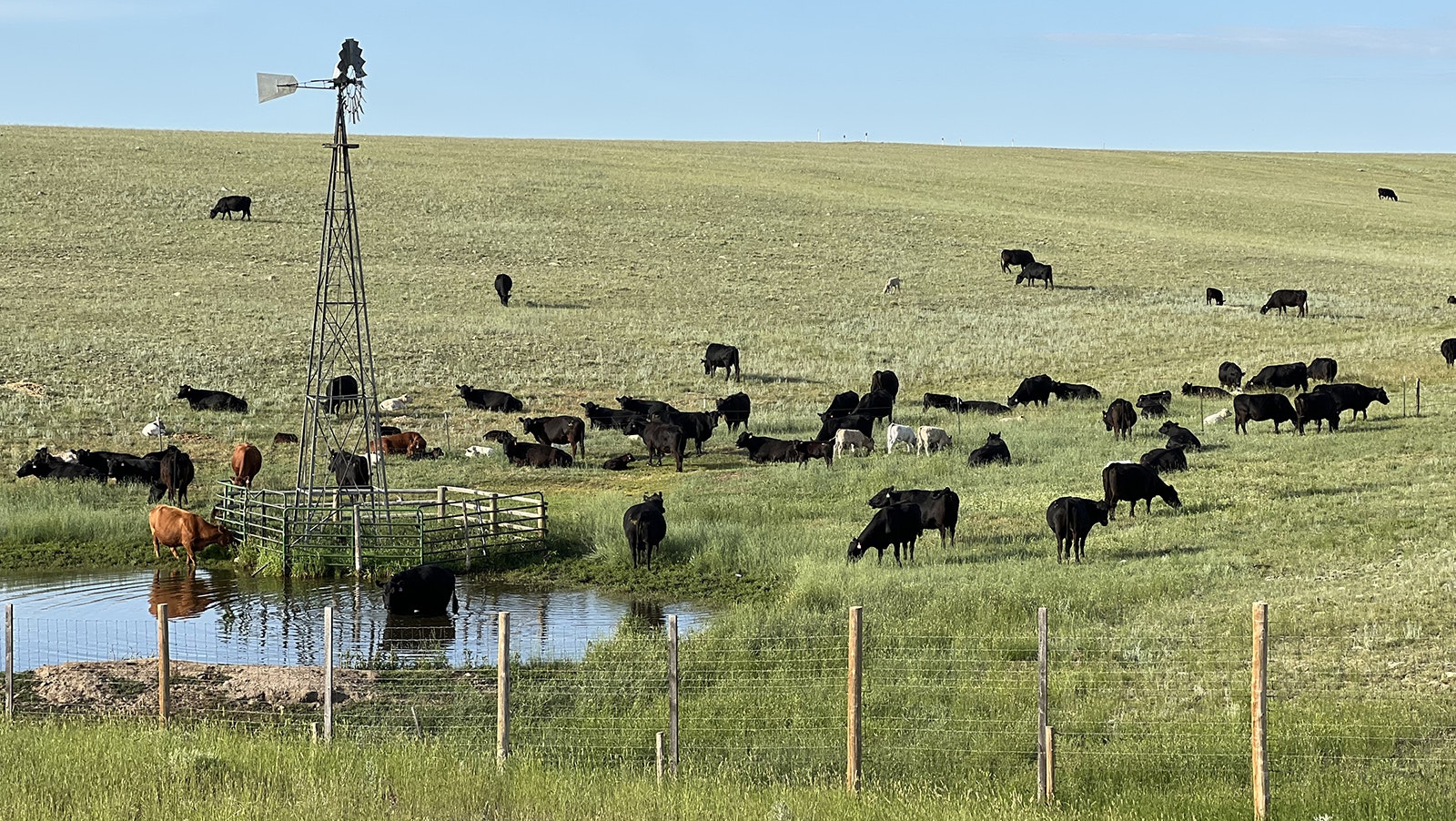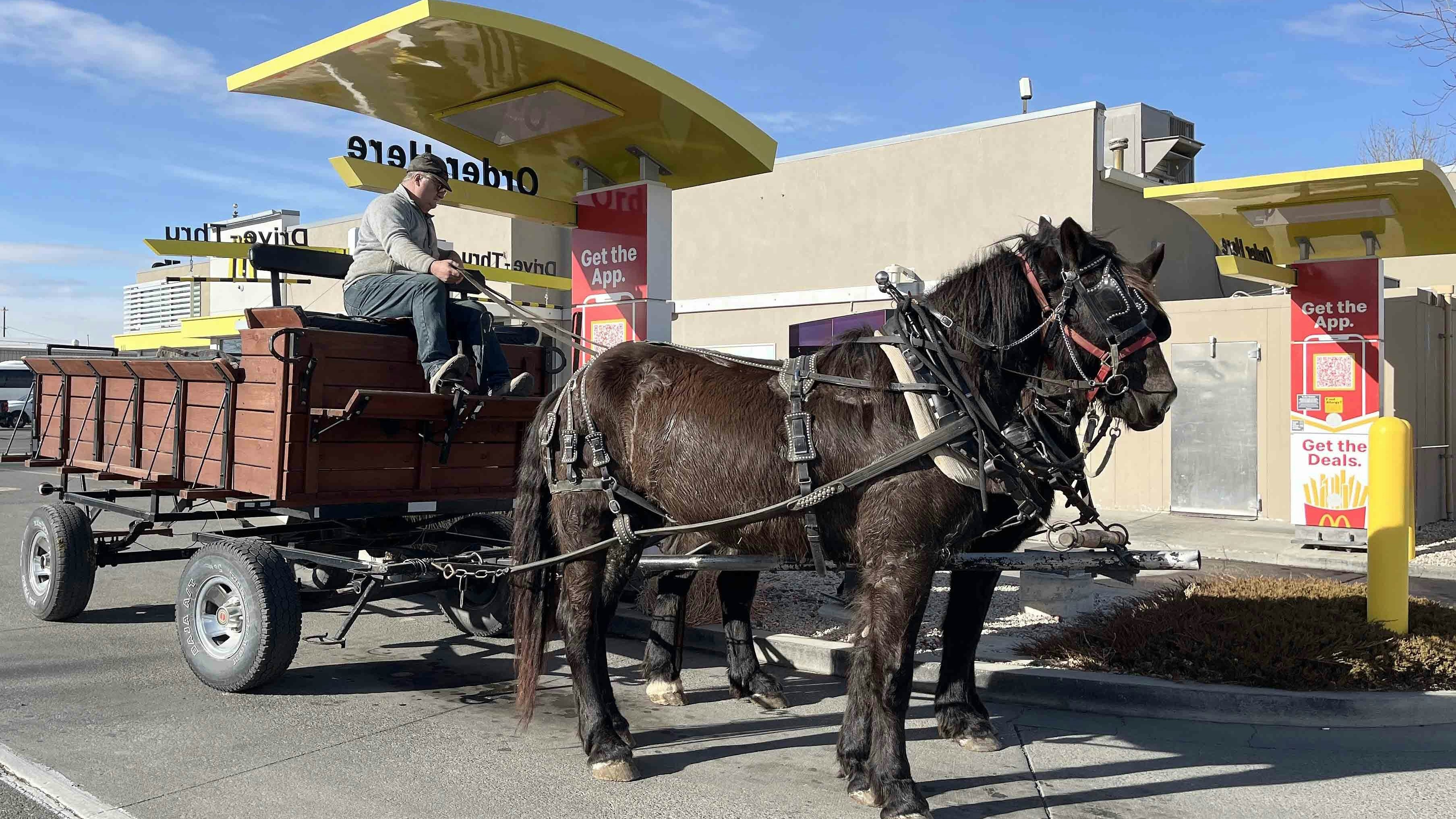Mandatory taxes paid by farmers and ranchers to promote popular food campaigns like “Pork: The Other White Meat,” “The Incredible Edible Egg” and “Beef, It’s What’s For Dinner” aren’t bringing home enough bacon, say supporters of federal reform legislation.
Farm groups sponsoring an effort to reform taxes on farm commodities, called checkoffs, say they are subject to mandatory taxes on livestock sales, and the money collected is often spent in opposition to their interests.
Supporters of the Opportunities for Fairness in Farming Act (OFF Act) claim they are forced to pay into checkoff programs that often advocate against them and support consolidation in the food industry.
The OFF Act is under consideration by both the U.S. House of Representatives and the U.S. Senate. It is proposed as an amendment to the Farm Bill, which is essentially the budget of the U.S. Department of Agriculture.
The Farm Bill includes conservation programs, farm subsidies, disaster assistance, and food programs including the Supplemental Nutritional Assistance Program (SNAP) and the Women, Infants and Children program known as WIC.
The OFF Act targets checkoffs for all farm commodities that utilize a federal checkoff to collect a tax and fund promotion of those commodities.
Where Does The Other Half Go?
Some Wyoming farm groups and political leaders oppose the legislation, some support it and others have yet to take a position.
R-CALF USA of Billings, Montana, and the Independent Cattlemen of Wyoming are among the supporters of the legislation. They say the OFF Act would provide a higher level of accountability and prevent tax dollars mandated for promotion and research from being spent on trade and lobbying.
When money generated through mandatory taxes on the sale of farm commodities is misallocated, farmers and ranchers can find themselves under attack from lobbying efforts they essentially paid for.
Paying the tax is one thing, but funding the opposition with your own money is about as appetizing as a canned mutton sandwich.
The way the checkoff works in the beef industry is every time a cow, heifer, steer or bull gets sold, the seller pays $1 to the beef checkoff. That means if the same animal is sold four times, it generates $4 in taxes. Every time an animal generates a dollar through a sale in Wyoming, the Wyoming Beef Council receives 50 cents, and the other 50 cents goes to the Cattleman’s Beef Board, a national organization.
Wyoming collects about a $1 million per year in beef checkoff funds. That money is distributed by the Wyoming Beef Council.
Examples Held Up To Support The Bill
The relationship between the National Cattlemen’s Beef Association (NCBA), a trade and lobbying group, and the Cattlemen’s Beef Board, (CBB) a promotion and education group made up of ranchers appointed by the U.S. Secretary of Agriculture, is too chummy, say supporters of the OFF Act.
Reform supporters raise the same concerns about the relationship between the National Pork Producers Council, a trade and lobbying group, and the Pork Board, a promotion and research group that allocates checkoff dollars. The Pork Board, similar to the CBB, is made up of pig farmers appointed by the Secretary of Agriculture.
As an example, OFF Act supporters cite a 2010 independent audit that revealed the National Cattlemen’s Beef Association (NCBA) improperly spent $200,000 in checkoff money on lobbying and overseas vacations.
Another example is the fact that many U.S. pig farmers don’t even want a checkoff program. More than 300,000 of them voted to dismantle the program in 2000. A referendum on the program allowed the pork checkoff to survive by only a 5% margin.
Following The Money
The Cattleman’s Beef Board allocated $38.5 million in checkoff funds in 2023. More than $25 million of that money was awarded to NCBA. About $18 million of the total was broken out among nine organizations into promotion and research projects.
OFF Act supporters say the number of U.S. cattle ranchers is declining along with beef consumption. They further claim that over the last several years, four large meat packing companies have gained control of 85% of the U.S. market.
“Promotions funded by checkoff programs are not allowed to distinguish between different production types such as grass-fed or regeneratively raised cattle,” according to an OFF Act fact sheet. “By reinforcing the idea that all beef is equal, these advertisements disadvantage premium beef products – even as producers are forced to help pay for them.”
NCBA uses the money to legitimize itself as the voice of the industry, even though its membership includes less than four percent of America’s cattle producers, according to supporters of the OFF Act.
Wyoming Congressional Delegation Mum So Far
The Off Act, sponsored by U.S. Sens. Mike Lee, R-Utah, and Cory Booker, D-New Jersey, has bipartisan support in both houses of Congress. Wyoming’s two senators have so far been silent on the act.
U.S. Rep. Harriet Hageman, R-Wyoming, has a long relationship with OFF Act supporter R-CALF USA, formerly serving as the organization’s lead attorney. Hageman has argued on behalf of several of the group’s core causes, including support of mandatory country-of-origin labeling of beef and against mandatory electronic livestock identification.
Spokesman Chris Berardi told Cowboy State Daily in an email that Hageman supports checkoff reform and believes checkoff programs should be voluntary.
“USDA should not be able to force producers to pay for items they do not want or need,” Berardi said.
However, the message did not explicitly mention the OFF Act and Hageman is not listed as a co-sponsor.
Wyoming Stockgrowers Position
The executive vice president of Wyoming’s largest livestock organization believes the OFF Act is a solution in search of a problem. Jim Magagna told Cowboy State Daily his organization “strongly opposes” the OFF Act.
“The distribution of beef checkoff dollars is controlled by the Cattlemen’s Beef Board, appointed by the Secretary of Agriculture,” Magagna wrote in and email to Cowboy State Daily. “The recipients are regularly audited by USDA. No significant discrepancies have been uncovered.”
He added that the $200,000 allegedly misappropriated by NCBA and mentioned in the OFF Act fact sheet was a mistake that was reimbursed after it was discovered.
How Wyoming Promotes Beef
State beef councils, made up of ranchers that are appointed, collect a portion of beef checkoff funds and work together to allocate the money on promotion and research.
Ann Wittmann, executive director of the Wyoming Beef Council, said promoting beef through a mandatory tax and making thousands of cattle ranchers nationwide happy about it is a tall order.
But in Wyoming, promoting beef is like taking sand to the beach. She said people here eat 3 to 6 pounds more beef per year than the national average, so it behooves the Wyoming Beef Council to spend its checkoff money in more populated states.
To put its promotion dollars to work, the Wyoming Beef Council cooperates with other state beef councils.
“We need to invest where the people are, and one of the challenges I see with the OFF Act is that state and national partnership will be severely compromised,” Wittmann said. “It would make it much more difficult for states like Wyoming to afford to advertise nationwide.”
Wittmann said if the reforms in the OFF Act were adopted it would pit the states against each other in their promotion efforts rather than cooperating.
“The way the laws are currently written, we have the ability to pull together with other states and improve the image of beef collectively,” she said. “It’s the idea that a rising tide floats all boats.”
Another part of the current law states that decisions on how to spend checkoff dollars be made at the grassroots level by producers.
The Federation of State Beef Councils is a national partnership that works with the Cattlemen’s Beef Board to allocate funds for promotion and research. This partnership assures funding decisions are made by producers and is one of the most valuable things about the beef checkoff, Wittmann said.
In 2018, the Wyoming Beef Council conducted a producer attitude survey that found 78% of Wyoming beef producers feel informed about the beef checkoff and 66% approve of the program in its current form. There were 131 producers who responded to the survey.
Lamb, The Other Red Meat?
Canned Australian mutton that was served to U.S. soldiers during World War II didn’t do the American sheep industry any favors.
Over the years, production of lamb in the U.S. has decreased to the point where only about 30% of the demand is being met by domestic product.
The American Lamb Board collects 42 cents on every animal sold and puts that money toward promotion and research.
When posed with the question of whether the U.S. sheep industry has missed the mark with its promotion efforts, Whit Stewart, a sheep extension specialist with the University of Wyoming and advisor to the Wyoming Woolgrowers Association, said the industry lacks funding compared to its competitors and faces many other problems.
Stewart said the U.S. sheep industry’s main competitor, Australia has much deeper pockets, a currency advantage, and domestic lamb costs 10% to 20% more.
“Can we do better in promotion? Absolutely,” Stewart said. “The American Lamb Board has done a great job with limited resources but a gut-check is important. Maybe there are some things we can do better to shake things up.”
In the 1960s the U.S. had 40 million sheep on farms. Today the number has dwindled to 5.3 million head, which leaves a lot fewer sales to tax.
“When our chief competitor has ten times more sheep than we do, their checkoff boards are a lot better funded,” he said.
The Lamb Board has focused some of its resources on assessing the industry’s carbon footprint and emphasizing the environmental benefits of lamb. Producers have questioned whether those efforts have helped with consumption of domestic product, he said.
“We do a ton of work at the University of Wyoming on lamb quality,” he said. “We feed out animals and compare it with the Australian product and our lamb is outstanding. It’s the almighty dollar that drives it and they are stealing our market share.”





